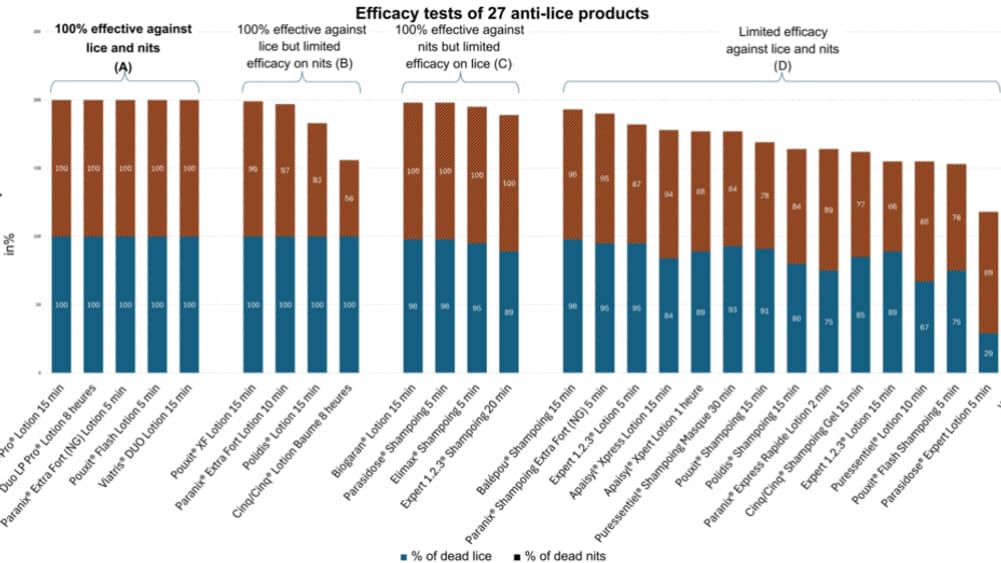It is one of the nightmares of the parents: lice. Often back in each school year, these parasitic insects are particularly difficult. And the products found in commerce to get rid of it are not helpful, to believe a study identified by the daily life of the pharmacist, based on the products sold in France in 2024.
According to the survey published on June 23 in The Cureus Journal of Medical Science, just five controlled products have a theoretical effectiveness of 100% in lice and nits, parasite eggs with the appearance of sand grains on the scalp.
“The results of this study highlight several concerns about the efficiency of antipoux treatments currently available in the French market,” write the authors.
The most effective are the least bought
On the side of the most effective products, the molecules used differ. Dérseraz-Pro works thanks to a crystallizing agent, others thanks to vegetable oils or mineral oils (“Duo Lp Pro”, “Extra Strong Paranix”) or even silicones (“Pouxit Flash”, “Viatris Duo”).
These products, which kill the parasite and its eggs, are the most effective. But they are far from being the best selling, they represent only 27% of the purchases of the French, for a market of around 20 million euros.
Other products are partially effective. Therefore, eight products are very effective against lice, but not against decelerated (“Pouxit XF Lotion 15 min”, “Paranix Extra Fort Lotion 10 min”, etc.) or, on the contrary, effective against nits but not lice (“Biogaran 15 min”, “15 -minute parasidosis”, etc.).
“Marketing strategies can fool”
Finally, for 14 products, the theoretical efficiency against the two stages of the parasite is partial or very bad. The worst product according to this study: Sausidosis Expert Lotion 5 min, which eliminates only 29% of lice. However, a paradox emerges, these ineffective products are also … the best sold. More than one product purchased in two is on the least efficient list.
“We can consider that proven products, whose effectiveness is not 100% against lice and nits, may not cure pediculosis (lice infestation, editor’s note), since only a woman or two or three viable eggs can give birth to a new generation”, take into account the authors.
These also question the “marketing strategies” of the manufacturers of these products, which show efficiency rates that “can deceive the user.” The instructions indicated would not be clear, as in the number of necessary uses or the protocol to follow.
“Some packaging promises a healing in a few minutes, but these treatments are often associated with combing or require a new application on the seventh day or several shampoos,” they cite as an example.
For several health and environmental reasons, the study authors invite manufacturers and public authorities to more controls. Therefore, it is recommended that the French health authorities “carry out rigorous efficiency evaluations before approving new treatments.”
Source: BFM TV


